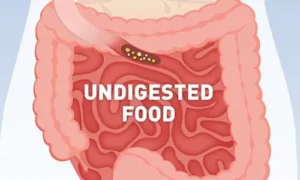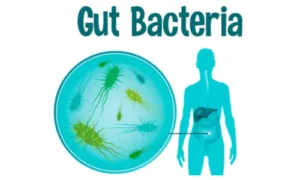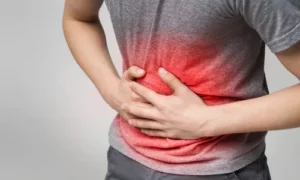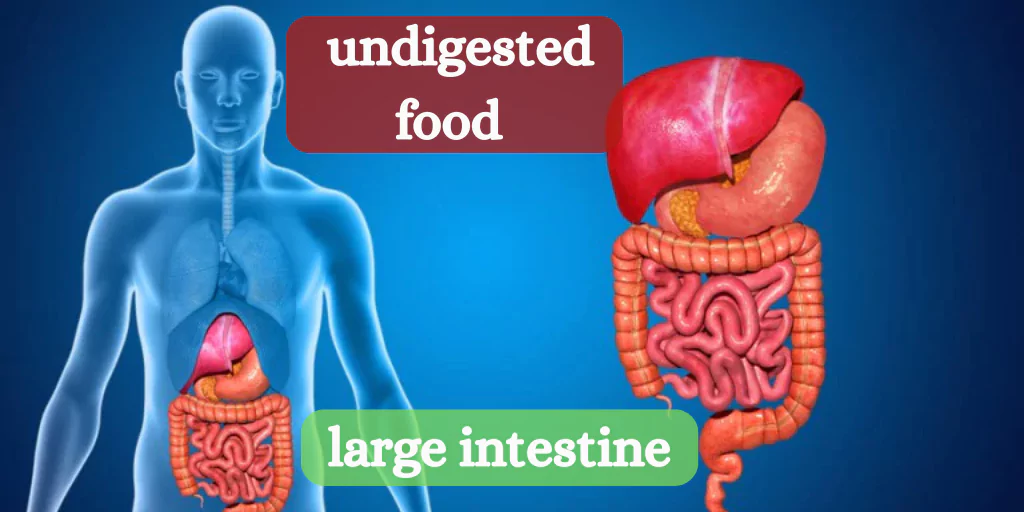Ever wondered what happens to the food that your body doesn’t fully digest? While most of the digestion takes place in the stomach and small intestine, some food components remain undigested. These leftovers move into the large intestine, where a fascinating process begins. Let’s take a closer look at what happens to undigested food once it enters the large intestine.
1. The Journey of Undigested Food

After food passes through your stomach and small intestine, all the essential nutrients—like proteins, fats, and carbohydrates—are mostly absorbed. However, some substances, like dietary fibre, certain plant compounds, and resistant starches, are not broken down. These undigested remnants are sent to the large intestine, also known as the colon.
Role of the Large Intestine
The large intestine is not primarily for digestion, but plays a vital role in:
1. Water Absorption:
One of its main jobs is to absorb water from the undigested material, turning it from a liquid to a solid form—faeces.
2. Fermentation of Fibre:
Bacteria present in the large intestine ferment dietary fibres and resistant starches. This fermentation produces short-chain fatty acids (SCFAs) that can be absorbed and used for energy. It also produces gases like methane and carbon dioxide.
3. Vitamin Production:
Some bacteria synthesise vitamins like Vitamin K and certain B vitamins, which can be absorbed by the colon.
4. Formation and Storage of Faeces:
The remaining waste is compacted and stored in the rectum until it is excreted from the body during a bowel movement.
2. Importance of Gut Bacteria

Your colon contains trillions of beneficial microbes that play an essential role in breaking down undigested food. These microbes:
- Help regulate your immune system
- Prevent the growth of harmful bacteria
- Support gut health and overall well-being
A diet high in fibre keeps these bacteria healthy and active, improving digestion and preventing constipation.
3. What Happens If This Process Goes Wrong?

If the large intestine can’t do its job properly, it can lead to issues like:
- Constipation (when not enough water is absorbed)
- Diarrhoea (when too much water stays in the waste)
- Bloating and gas due to excessive fermentation
- Nutritional deficiencies occur if microbial balance is disturbed
Conclusion:
The large intestine might not get much attention, but it plays a critical role in the final stages of digestion. By handling undigested food, absorbing water, producing vitamins, and maintaining a healthy microbial balance, it ensures your digestive system runs smoothly. Eating a balanced diet rich in fibre supports this vital process and keeps your gut in good health.







888slot Login
June 18, 2025Nhà cái 888slot Login cung cấp dịch vụ cá cược thể thao đỉnh cao, cho phép bạn đặt cược vào nhiều môn thể thao khác nhau như bóng đá, bóng rổ, tennis và nhiều môn khác. TONY12-16